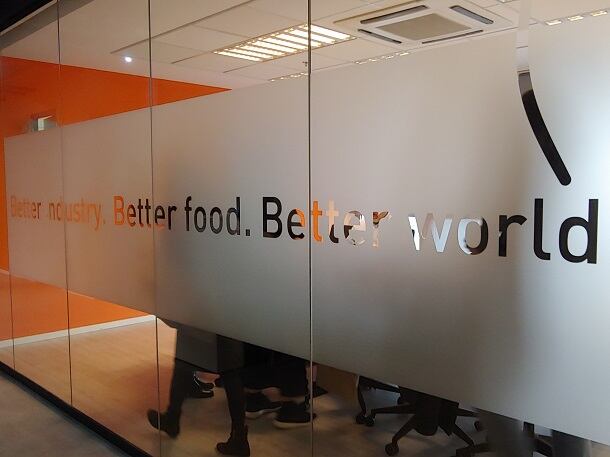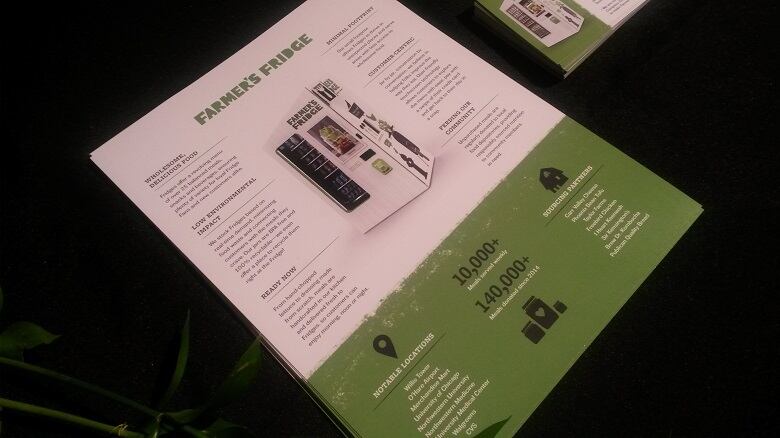Lisa Curtis, who has raised more than $10 million in capital since she launched Kuli Kuli in 2014, including $5 million in a series B round announced last week, explains that finding investors, earning their trust and structuring a deal that benefits everyone was much more time-consuming and difficult than she expected.
But she also notes it is doable if entrepreneurs set aside sufficient resources, know what they need, and stay true to their company values throughout the process. She also encourages companies to look beyond the obvious venture capitalists and high-rollers for financial support as even small sums from disparate sources can add up.
Be prepared to work
Despite all the investment money flooding the food and beverage industry currently, “fundraising is hard,” said Curtis. “It is so hard. It is time consuming, and I think particularly in the early days, it can be really disheartening.”
She explained that when she first launched Kuli Kuli she was 22 years old and fresh out of the Peace Corps with no experience in food, no formal business education and “nothing to make people validate me or make people want to believe me. So, I had to prove it out.”
One way she did this was by tackling fundraising the same way anyone would build a sales pipeline – by going to every event she could find to network, giving her card to anyone who would take it and asking for cards of anyone who might someday, someway be able to help.
To help her stay focused, Curtis said she made fundraising “as compressed as possible” by defining a time limit, which helped her stay motivated knowing there was a deadline and a light at the end of the tunnel.
With this ethos, Curtis was able to tap 22 different angel investors in a nine month period to raise $1 million during its seed round, which helped the company take its moringa powder nationwide with Whole Foods Market.
Less than three years later, Curtis was back at it to raise $4.25 million in Kuli Kuli’s series A round, led by three different venture firms, all of whom she grilled before she signed on with them to ensure that they could offer more than funds to help the company grow.
She also wanted to ensure that they shared her same values and would respect the company’s trajectory and mission.
“When you are an entrepreneur and you are looking for fundraising, any capital looks good. You are sort of in the ‘I’ll take whatever I can get’ [mindset], but the thing you might not realize is you are basically marrying these people, and you are marrying them for the lifetime of your company. So, if you marry somebody you don’t love, there is going to be some tricky situations down the line,” she warned.
With that in mind, she added, entrepreneurs need to be upfront about their mission, their values and their long-term goals.
Protecting the mission
In addition to partnering with investors who shared her values, Curtis further protected the mission of Kuli Kuli from getting lost or pushed aside as more investors became involved in the company by becoming a certified benefit corporation.
“We have been B Corp certified since 2014 when we launched and that was something that was important to me from day one,” Curtis said.
She added that she took this to the next level as a way to further protect her company before she took on big investors.
“What we did before our Series A is go one step further and become a full-fledged benefit corporation, which not many people know the difference, but basically we wrote into our legal DNA that our goal as a company is not to maximize profit, but it is also to maximize purpose, and we defined purpose as using nutrient rich plants, like moringa, as a tool to improve nutrition and livelihoods worldwide,” she said.
What that means from an acquisition standpoint is “we could, as a Benefit Corp, sell for less money because of our values. And I think that is a power of having that mission driven legal structure, and that is something we thought a lot about.”
VCs are not the only fish in the sea
While finding partners with deep pockets has many benefits, Curtis also encourages entrepreneurs not to overlook other options for raising smaller amounts that can add up.
“We have raised every type of capital. We have raised equity capital, we have raised grant capital, we have raised crowdfunding capital and we have gotten loans and working lines of credit,” and they have all helped build Kuli Kuli, Curtis said.
She explained that some of these options, such as zero-interest loans, may be smaller but when building a business – especially in the early days – every little bit can help.
She also noted that with some options, such as grants, entrepreneurs may need to be more patient as the decision timelines can be longer than expected – but again, she said, grants are useful not just for money but also for the publicity that sometimes comes with them.
Other options, like bank loans and lines of credit, can be hard to secure given how long it takes for a food or beverage company to return a profit, but there are lenders out there – it is just a matter of finding a good fit, Curtis said.



